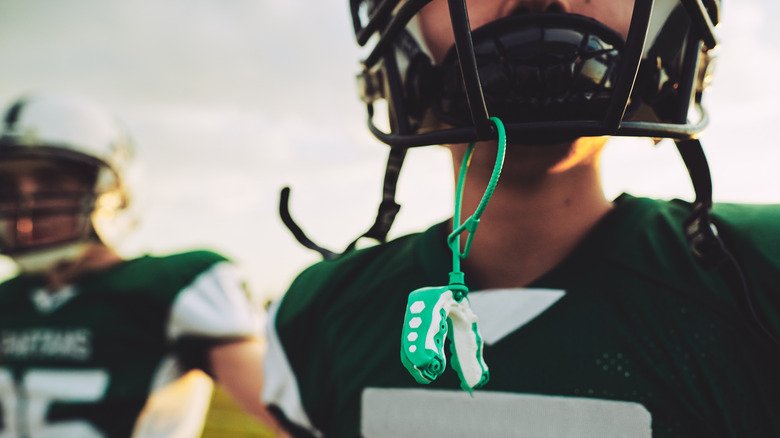Outside of the beauty of the human smile, teeth are often underappreciated parts of the human body. Teeth can do a number of incredible things, like identify a person or even serve as indicators of your health. The 32 teeth found in the typical adult mouth not only play a critical part in chewing food, but they also contribute to speech.
Your teeth are made up of several different layers. The periodontal ligament connects the teeth to the jaw, and the cementum connects the roots of the teeth to the gums and jaw. The inside of a tooth is composed of a soft layer called the pulp, then comes the dentin, a hard tissue. On the outermost layer of the tooth is the enamel, a rock-hard substance made of calcium phosphate. In fact, the teeth are the hardest part of the human body — but they are not indestructible.
In order to protect teeth from damage — either from trauma that can occur when you play sports or loss of enamel from teeth grinding — people often wear a protective device colloquially referred to as a mouth guard. However, there are differences between the type of protective oral device you wear for sports and the ones designed to wear during sleep. Here’s everything you need to know about the differences between sports guards and night guards.
The purpose of wearing a sports guard

A sports guard, gum shield, mouth guard, or mouthpiece are all names for a type of oral protection device used during sports. They are often worn during contact sports like hockey, football, rugby, boxing, and mixed martial arts. However, many basketball and soccer players also wear a sports guard. You can pick up a sports guard at the store for around $25, while a custom sports guard can cost upwards of $60.
Sports guards serve to protect the teeth from direct damage that can occur from trauma. For example, a mouth guard can protect teeth from a hockey puck or a hockey stick, helping to prevent a broken tooth or tooth loss. There are even sports guards — designed for athletes with braces — that can prevent oral cuts and scrapes.
One topic of contention regarding sports guards is the idea that they can prevent concussions. There is mixed evidence supporting this claim, but a 2024 study published in the International Journal of Environmental Research and Public Health did find an association between sports guard use and a lower incidence of concussions from sports.
The benefits of wearing a night guard
A night guard is designed to treat the nighttime teeth-grinding condition known as bruxism, which leads to the breakdown of the enamel in your teeth. You might experience symptoms like jaw pain, headaches, sensitive teeth, and poor sleep. A night guard can cost anywhere from $300 to $500, on average, with custom night guards running upwards of $1,000. Custom night guards are also easier to breathe with and stay in place in your mouth better than regular store-bought ones. Your dentist can help you get a custom night guard by taking impressions of your teeth and sending them to a special lab where your night guard is crafted.
It is important to get a night guard if you grind your teeth because it can help stop the grinding process — and that’s a good thing. Bruxism can lead to permanent damage of your teeth and gums.